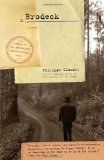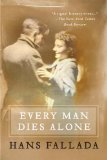Summary | Excerpt | Reading Guide | Reviews | Beyond the book | Read-Alikes | Genres & Themes | Author Bio

A Novel
by Julia FranckWinner of the 2007 German Book Prize for the year's best novel, Die Mittagsfrau was first published in English as The Blind Side of the Heart (2009) and then reprinted as The Blindness of the Heart--a reference to the ways in which characters come to avoid those they love after repeated hardship, and, more broadly, to the ways in which the state can persuade society to "see" only what has been sanctioned. Julia Franck's novel chronicles key moments in the life of Helene Würslich, a fictional Jewish-German young woman whose transition from late childhood to early adulthood is characterized by serial abandonment. Her mother's mental illness, her father's enabling indulgence, her elder sister's increasing drug dependence, her fiancé's abrupt death, and her later husband's zealotry for the rising Nazi regime are presented as precursors to her own emotional numbness and the eventual abandonment of her son. Franck stops short, however, of suggesting that painful pasts lead to inevitable outcomes. The novel is not, after all, a naturalist one in the vein of Theodore Dreiser's Sister Carrie (wherein a provincial young woman is corrupted by city life), nor is it strictly a psychological study of feminine struggles. Helene is intelligent, hardly a naif, and Franck does not pass moral judgment on her decisions. Still, it is tough to avoid drawing comparisons with early-twentieth-century works that similarly portrayed women in the midst of changing environments, often with deterministic pessimism.
The early chapters of Franck's novel are devoted to the years spent in Bautzen, Helene's hometown. Her childhood, while not exceptionally unusual, is punctuated by borderline-incestuous eroticism, her father's prolonged absence, and the eventual privations of a postwar economy. After their father's death, Helene and her sister, Martha, leave their reclusive mother in the care of a servant to embark for Berlin, where their cosmopolitan aunt Fanny has invited them for an extended stay. It is here that Helene is exposed to the debaucheries of the Weimar Republic, though political discussions remain at the fringes of social encounters. Franck is especially adept at portraying the sharp contrast between the roaring twenties and the decades to come.
What can the general reader glean from immersion in this period between wars, which offers seemingly little respite from a mostly bleak trajectory? This may be a fair question, yet it may also be unfair to ask for greater redemptive interludes; The Blindness of the Heart is very much a tale of chilling times, and fittingly, it adopts an unsparing approach. Two of the more disturbing moments occur when Helene conceals her Jewishness by accepting falsified papers that "prove" her Aryan ancestry, and when, in her capacity as a nurse, she attends forced surgeries on women who have been identified by eugenicists as unfit for reproduction.
Examples of attempts at erasure--of one's past, and of future potential--can seem startling in the novel, which otherwise omits the harsher details of the Third Reich's ascendancy. Even when those who are close to Helene lose their jobs or are taken to camps, their plights seem peripheral; she is aware of differences and is at times complicit in certain events, but she is also burdened by her own problems. It is precisely this demonstration of how easily passivity could happen, day by day, that transforms one woman's story into a more piercing, provocative consideration of how society at large can permit crimes to escalate even when individuals may not condone them.
![]() This review was originally published in The BookBrowse Review in November 2010, and has been updated for the
June 2011 edition.
Click here to go to this issue.
This review was originally published in The BookBrowse Review in November 2010, and has been updated for the
June 2011 edition.
Click here to go to this issue.

If you liked The Blindness of the Heart, try these:

by Phillipe Claudel
Published 2010
Set in an unnamed time and place, Brodeck blends the familiar and unfamiliar, myth and history into a work of extraordinary power and resonance. Readers of J. M. Coetzee's Disgrace, Bernhard Schlink's The Reader and Kafka will be captivated by Brodeck.

by Hans Fallada
Published 2010
This never-before-translated masterpiece—by a heroic best-selling writer who saw his life crumble under the Nazis— is based on a true story. It presents a richly detailed portrait of life in Berlin under the Nazis and tells the sweeping saga of one working-class couple who decides to take a stand when their only son is killed at the front...
Your guide toexceptional books
BookBrowse seeks out and recommends the best in contemporary fiction and nonfiction—books that not only engage and entertain but also deepen our understanding of ourselves and the world around us.